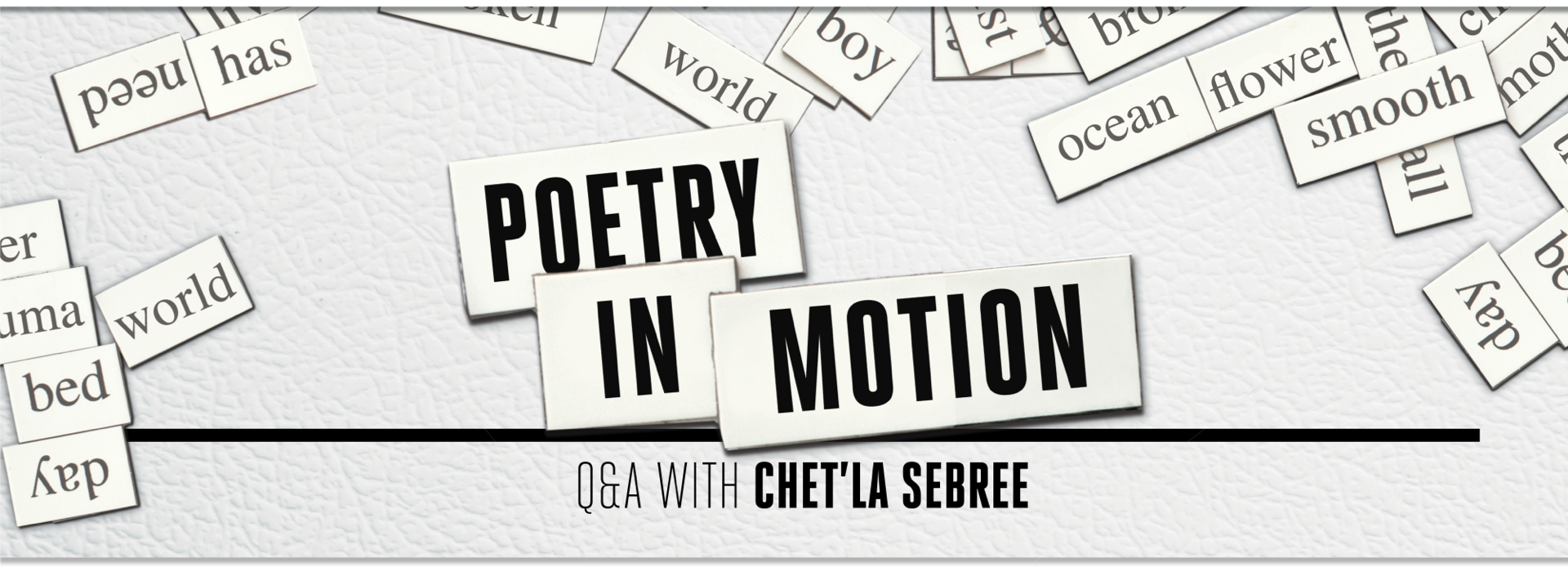Poetry in Motion
In her poetry and her classroom, English Professor Chet’la Sebree challenges the stories we tell ourselves about art, AI and how to make sense of the world.
By John DiConsiglio
Assistant Professor of English Chet’la Sebree refuses to be confined within the margins—whether in the classroom or in print.
A poet, essayist and educator, Sebree isn’t afraid to break free of form and convention. Within a book—within a single poem—she can switch from sonnets and prose paragraphs to Tweet-like snippets, pop-culture references and lines that literally run off the page.
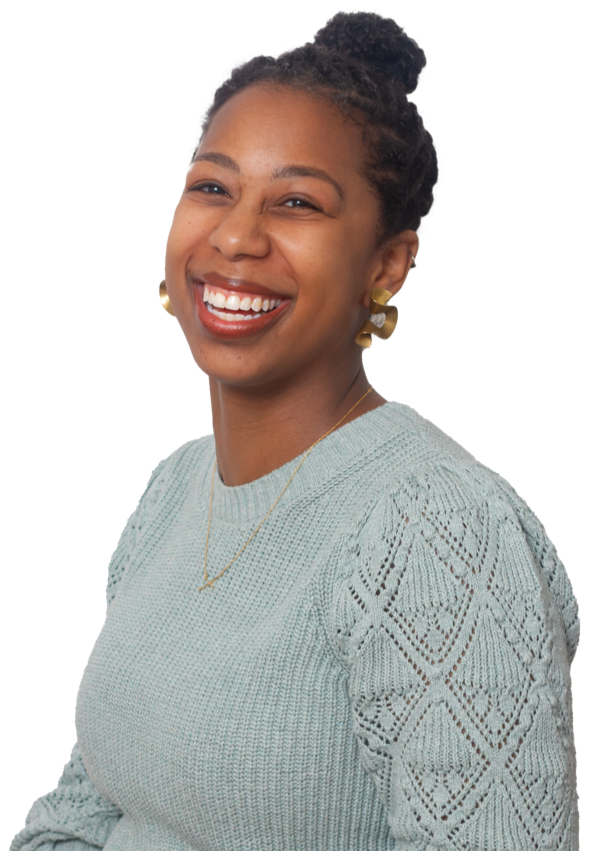
“I ask myself, ‘What is a poem? What does it look like?’ And my answer is: It doesn’t have to look just one way to arrive at a truth,” she said. “There’s no one shape for a poem.”
Indeed, Sebree’s writing stretches both styles and subjects. In her 2019 debut “Mistress” (New Issues Poetry and Prose), she channeled the ghost of Sally Hemings through the words of a modern-day woman—also named Chet’la—in a shared vision of Black women’s voices and bodies. In her new book, “Blue Opening” (Tin House, 2025), she takes on no less a topic than human origins—from the miracle of motherhood and the anguish of illness to the birth of the universe itself. And in her upcoming essay collection “Turn Where,” she explores her own relationship to home, heritage and belonging through travel.
“I like to say I abandon people in an ocean of their own emotions,” she laughed.
Sebree is equally willing to defy expectations in the classroom. Teaching undergraduate creative writing, she coaxes students into loving verse with museum visits and exercises like piecing together poems from an alphabet of refrigerator magnets. For Sebree, converting poetry skeptics is an artistic challenge. “I will bring you into the light with me,” she declared.
Still, Sebree says she finds herself increasingly defending the value of poetry in the age of artificial intelligence. With algorithmic content threatening to flatten creativity, she argues that poetry—and the emotional truths it uncovers—is more important today than ever.
“Where do we turn to render the world in a way that makes sense?” she said. “For many people, it’s poetry.”
In an interview, Sebree discussed why poets should rely on research, how working in Thomas Jefferson’s bedroom helped her capture Hemings’ voice and whether AI will ever write a good poem.

How did you become a poet? What does a poet’s career path look like?
I always knew I wanted to be a writer of some sort. The two things I daydreamed about as a child were to either be an educator or a writer. Lucky for me, both worked out.
I was always a reader, but I mostly read a lot of fiction. Books like “The Bluest Eye,” “Wide Sargasso Sea” and “The Great Gatsby” fundamentally impacted me. I thought I was going be a novelist. Now when I think about writing novels—it’s just so many words! So, no, I didn’t always read poetry; I didn’t always write poetry. It just kind of found me.
Do you remember when you first started writing poetry?
The first poem that I was really proud of was called “The Wind Whispering Sea.” I wrote it in seventh grade. I would probably really dislike it now. But I still stand by that title. Wind, whispering, sea. It’s got great assonance!
College was the first time I thought, “Oh, this poetry thing may be up my alley.” Another student wrote a poem during an undergraduate class about a death in her family. It was just a page or two, but it made me feel as devastated as the family members. I realized I wanted to be involved in a business that makes someone feel this acutely in such a finite amount of space.
All writing careers are risky. Poetry seems especially so.
Poetry definitely felt like a gamble. My mother, who is a chemist-turned-attorney, was particularly confused when I decided I wanted to go to graduate school to study poetry. I never anticipated that it would be a career, that I would ever actually make money from it. My goal was to deepen my practice and craft. From the beginning, I knew I was not setting off on a financially lucrative path. No one goes into writing poems to be rich and famous.
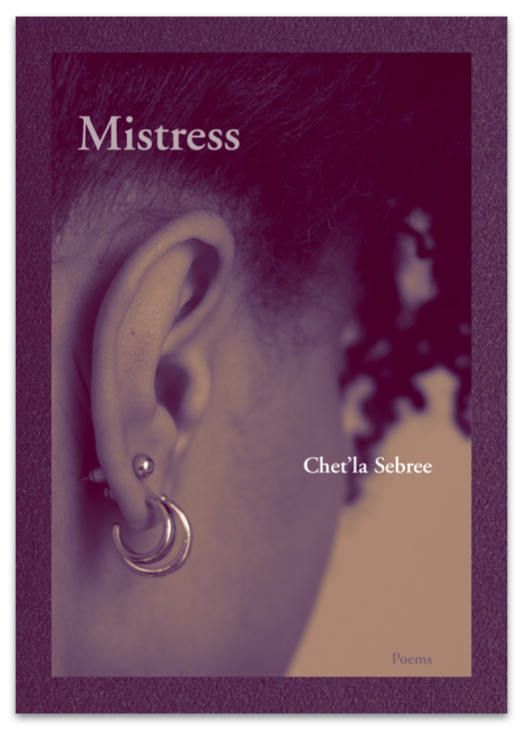
I’ve learned it takes practice to be a master
of something painful, satisfying, seemingly useless.
First, understand, you must be broken.
—from “An Elaborate Non-Yoga Pose in Which You Realize You Were Not Made for this World” in “Mistress”
Looking at the breadth of your subject matter—from Sally Hemings in “Mistress” to the maternal voices in “Blue Opening”—are there themes that connect your work?
I want to make space for what we don’t talk about. That’s been a core tenet throughout my work. There are so many emotional truths that we bury in service of respectability or just making other people comfortable.
I’m interested in the breadth of our existence—what it means to fail, what it means to hurt other people, what it means to get hurt ourselves. We so often put ourselves in rigid boxes thinking we need to be just one way in order to be loved or accepted. Across my writing, I want to showcase a wide variety of experiences and say, “These are the things that make us human.”
And part of that is exploring Black women’s experiences. Because I think the world tries to make Black women so small. What does it mean for me to live in this world—in this body—in a way that celebrates it?
Are those experiences you’ve encountered yourself?
Yes, definitely. I grew up in Delaware and I had family outside of Philadelphia. I went to a small Quaker school for a huge chunk of my childhood that was predominantly white. There I felt like I stood out as one of the few Black kids in class. But when I got home to my family, they’d say, “Oh, you sound like those white kids you spend all your time with.” So it always felt like I was yo-yoing between worlds, and I never fit in.
It’s actually part of the reason that, when I teach at predominantly white institutions like GW, it’s important for me to show up for my students of color and queer students—all of my students who feel like they don’t see anyone else who represents them. I know what it means to not have anybody as an authority figure who really understood my particular experiences and preoccupations.
You do a lot of research for your poems—including an internship at Monticello while you were writing “Mistress.” Are people surprised to learn that a poet conducts research?
A lot of people believe that poetry is, to quote William Wordsworth, “a spontaneous overflow of powerful feelings.” Everyone thinks I just sit down and write my feelings. I’m often grappling with something I want to understand better. Sometimes that might be a feeling, but it might be a problem in the world, too.
I always encourage students to do research for their writing—even if it’s on, say, the particularities of a flower. They need to know the parts of the flower, its genus, whether it’s cross-pollinated. Those textural details bring something really beautiful to the poem.
As for my research practice, it’s robust because I’m not interested in telling just a singular story. Even if I’m writing about myself and my experiences, I’m part of a larger network of human beings. We’re all connected in such a beautiful nexus. Why not bring other voices into the conversation?
Did you really write in Thomas Jefferson’s bedroom?
I sure did. I sat on the floor of Jefferson’s bedroom and wrote. Monticello is a working museum. The tour day starts at 9 a.m., so I usually had 20 or 30 minutes to sit alone in his room before they set up. It was a room in which few people had ever been allowed to be alone. Just Jefferson and his personal attendants and, presumably, Sally Hemings. It was his private space, so it was also a space that she may have been in.
I wasn’t writing whole poems in that room. I only had like 30 minutes—so it was a really frantic writing period. But I wanted to capture what it sounded like, what it looked like as the light changed during the seasons. It was really transformative to the project. I’d spent five years researching, but most of the poems in [Sally’s] voice were written after being in Monticello and living in Charlottesville for a year.
It was a wild moment to be in this space—particularly a Black woman in this space—and taking charge of a narrative that so many people historically couldn’t control for themselves.
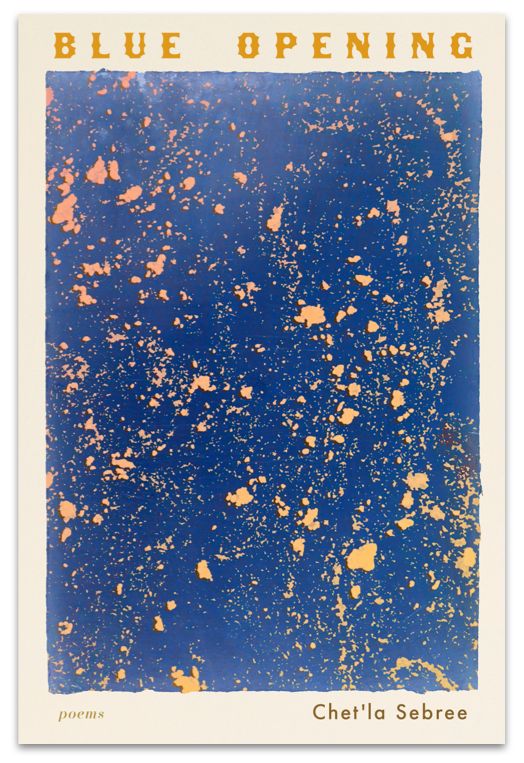
Because trauma leaves a chemical marker. Because
the child follows the condition of the mother.
Because I need to know all the ways
I will teach you to suffer
—from “Genesis” in “Blue Opening”
Let’s talk about what it’s like to teach poetry. Are your students aspiring poets?
In the fall, I teach an undergraduate techniques and creative writing course called Poetry as Remix Cover and Sample. It’s open to everyone. That’s always fun because people bring their own unique interests into the conversation. Some are talking about visual arts; some are talking about science and the body.
Are they skeptical about poetry?
I have taught students who, on the first day of class, say “I hate poems. I’m only here because it fits into my schedule.” I try to unpack why people see poetry as a lesser genre. Usually, they think poems are scary. That’s fine—I think they’re scary too. But I hope to bring them over to poetry—which I have successfully done!
How do you bring skeptical students over to poetry?
My classes are fun! I’ll take students out to a museum to write about art. I’ll bring in those refrigerator magnets with random words on them to play around with. I’ll make up chaos prompts—like today’s poem has to be only so-many-words or it has to include a metaphor or a description.
I might send them out into the world for 15 minutes and ask them to write what they saw. We might talk about how music can be a framework for what we do in poetry. I tell them there’s not one way to write poetry. It’s about finding your access point and developing from there.
In light of our current times, when the humanities can seem to be subsumed by politics and technology, do you find yourself justifying poetry’s worth?
Well, that’s a question I actually ask myself: Should I be doing something else with these words than writing poems?
But then I think about where people turn in these very chaotic political times to render how they’re feeling in ways that are palatable or digestible. Sometimes, people turn to poems.
There’s something we as poets are trying to get to at the fundamental core of human experience—sometimes in just a line or few words. That compressed form often resonates with people by speaking to a larger experience in ultimately powerful and meaningful ways.
I think the poems will continue to matter—even though they’re under-loved and underfunded. In 50, 100, 200 years, people will read poems and know what it meant to live here and now.
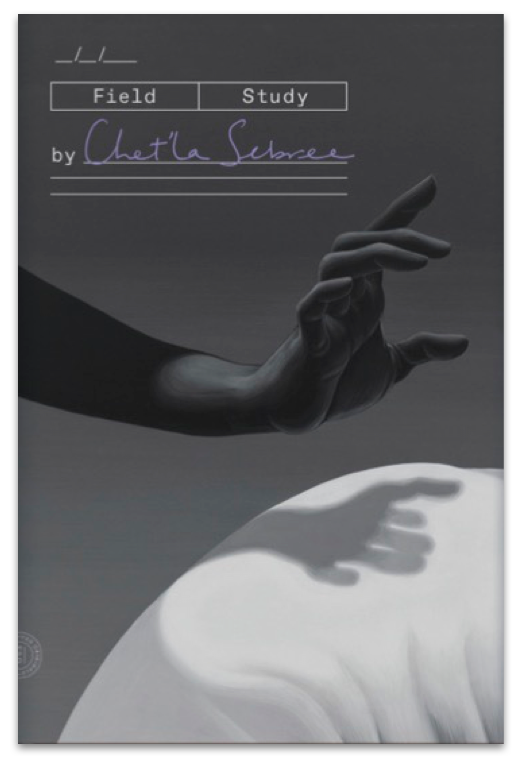
Someone asked if I was writing an auto-ethnography in poetry.
A character study, a fiction, a script.
—from “Field Study”
How about AI? Does it feel like a threat to poetry? Does it scare you?
It does scare me—but not in terms of taking over my job. AI is pretty bad at writing poems.
But I am absolutely terrified of how it could deaden our capacity for critical thinking and writing. In that sense, it can shortcut intellectualism and human engagement—which doesn’t lead to any real meaningful truth.
But in terms of poetry, I don’t think it’s ever going to know what it means to live in our bodies. So as poets, we feel just a wee bit safe. No one wants to read AI-generated poems!”

